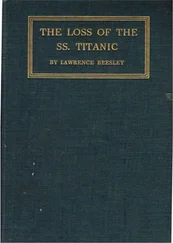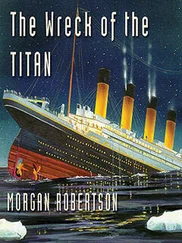Theodore Dreiser - The Titan
Здесь есть возможность читать онлайн «Theodore Dreiser - The Titan» весь текст электронной книги совершенно бесплатно (целиком полную версию без сокращений). В некоторых случаях можно слушать аудио, скачать через торрент в формате fb2 и присутствует краткое содержание. Жанр: Классическая проза, на английском языке. Описание произведения, (предисловие) а так же отзывы посетителей доступны на портале библиотеки ЛибКат.
- Название:The Titan
- Автор:
- Жанр:
- Год:неизвестен
- ISBN:нет данных
- Рейтинг книги:5 / 5. Голосов: 1
-
Избранное:Добавить в избранное
- Отзывы:
-
Ваша оценка:
- 100
- 1
- 2
- 3
- 4
- 5
The Titan: краткое содержание, описание и аннотация
Предлагаем к чтению аннотацию, описание, краткое содержание или предисловие (зависит от того, что написал сам автор книги «The Titan»). Если вы не нашли необходимую информацию о книге — напишите в комментариях, мы постараемся отыскать её.
The Titan — читать онлайн бесплатно полную книгу (весь текст) целиком
Ниже представлен текст книги, разбитый по страницам. Система сохранения места последней прочитанной страницы, позволяет с удобством читать онлайн бесплатно книгу «The Titan», без необходимости каждый раз заново искать на чём Вы остановились. Поставьте закладку, и сможете в любой момент перейти на страницу, на которой закончили чтение.
Интервал:
Закладка:
Through the influence of these powerful advocates he was invited to speak before various local commercial bodies—the Board of Real Estate Dealers, the Property Owners’ Association, the Merchants’ League, the Bankers’ Union, and so forth, where he had an opportunity to present his case and justify his cause. But the effect of his suave speechifyings in these quarters was largely neutralized by newspaper denunciation. “Can any good come out of Nazareth?” was the regular inquiry. That section of the press formerly beholden to Hand and Schryhart stood out as bitterly as ever; and most of the other newspapers, being under no obligation to Eastern capital, felt it the part of wisdom to support the rank and file. The most searching and elaborate mathematical examinations were conducted with a view to showing the fabulous profits of the streetcar trust in future years. The fine hand of Eastern banking-houses was detected and their sinister motives noised abroad. “Millions for everybody in the trust, but not one cent for Chicago,” was the Inquirer ’s way of putting it. Certain altruists of the community were by now so aroused that in the destruction of Cowperwood they saw their duty to God, to humanity, and to democracy straight and clear. The heavens had once more opened, and they saw a great light. On the other hand the politicians—those in office outside the mayor—constituted a petty band of guerrillas or free-booters who, like hungry swine shut in a pen, were ready to fall upon any and all propositions brought to their attention with but one end in view: that they might eat, and eat heartily. In times of great opportunity and contest for privilege life always sinks to its lowest depths of materialism and rises at the same time to its highest reaches of the ideal. When the waves of the sea are most towering its hollows are most awesome.
Finally the summer passed, the council assembled, and with the first breath of autumn chill the very air of the city was touched by a premonition of contest. Cowperwood, disappointed by the outcome of his various ingratiatory efforts, decided to fall back on his old reliable method of bribery. He fixed on his price—twenty thousand dollars for each favorable vote, to begin with. Later, if necessary, he would raise it to twenty-five thousand, or even thirty thousand, making the total cost in the neighborhood of a million and a half. Yet it was a small price indeed when the ultimate return was considered. He planned to have his ordinance introduced by an alderman named Ballenberg, a trusted lieutenant, and handed thereafter to the clerk, who would read it, whereupon another henchman would rise to move that it be referred to the joint committee on streets and alleys, consisting of thirty-four members drawn from all the standing committees. By this committee it would be considered for one week in the general council-chamber, where public hearings would be held. By keeping up a bold front Cowperwood thought the necessary iron could be put into his followers to enable them to go through with the scorching ordeal which was sure to follow. Already aldermen were being besieged at their homes and in the precincts of the ward clubs and meeting-places. Their mail was being packed with importuning or threatening letters. Their very children were being derided, their neighbors urged to chastise them. Ministers wrote them in appealing or denunciatory vein. They were spied upon and abused daily in the public prints. The mayor, shrewd son of battle that he was, realizing that he had a whip of terror in his hands, excited by the long contest waged, and by the smell of battle, was not backward in urging the most drastic remedies.
“Wait till the thing comes up,” he said to his friends, in a great central music-hall conference in which thousands participated, and when the matter of ways and means to defeat the venal aldermen was being discussed. “We have Mr. Cowperwood in a corner, I think. He cannot do anything for two weeks, once his ordinance is in, and by that time we shall be able to organize a vigilance committee, ward meetings, marching clubs, and the like. We ought to organize a great central mass-meeting for the Sunday night before the Monday when the bill comes up for final hearing. We want overflow meetings in every ward at the same time. I tell you, gentlemen, that, while I believe there are enough honest voters in the city council to prevent the Cowperwood crowd from passing this bill over my veto, yet I don’t think the matter ought to be allowed to go that far. You never can tell what these rascals will do once they see an actual cash bid of twenty or thirty thousand dollars before them. Most of them, even if they were lucky, would never make the half of that in a lifetime. They don’t expect to be returned to the Chicago City Council. Once is enough. There are too many others behind them waiting to get their noses in the trough. Go into your respective wards and districts and organize meetings. Call your particular alderman before you. Don’t let him evade you or quibble or stand on his rights as a private citizen or a public officer. Threaten—don’t cajole. Soft or kind words won’t go with that type of man. Threaten, and when you have managed to extract a promise be on hand with ropes to see that he keeps his word. I don’t like to advise arbitrary methods, but what else is to be done? The enemy is armed and ready for action right now. They’re just waiting for a peaceful moment. Don’t let them find it. Be ready. Fight. I’m your mayor, and ready to do all I can, but I stand alone with a mere pitiful veto right. You help me and I’ll help you. You fight for me and I’ll fight for you.”
Witness hereafter the discomfiting situation of Mr. Simon Pinski at 9 P.M. on the second evening following the introduction of the ordinance, in the ward house of the Fourteenth Ward Democratic Club. Rotund, flaccid, red-faced, his costume a long black frock-coat and silk hat, Mr. Pinski was being heckled by his neighbors and business associates. He had been called here by threats to answer for his prospective high crimes and misdemeanors. By now it was pretty well understood that nearly all the present aldermen were criminal and venal, and in consequence party enmities were practically wiped out. There were no longer for the time being Democrats and Republicans, but only pro or anti Cowperwoods—principally anti. Mr. Pinski, unfortunately, had been singled out by the Transcript , the Inquirer , and the Chronicle as one of those open to advance questioning by his constituents. Of mixed Jewish and American extraction, he had been born and raised in the Fourteenth and spoke with a decidedly American accent. He was neither small nor large—sandy-haired, shifty-eyed, cunning, and on most occasions amiable. Just now he was decidedly nervous, wrathy, and perplexed, for he had been brought here against his will. His slightly oleaginous eye—not unlike that of a small pig—had been fixed definitely and finally on the munificent sum of thirty thousand dollars, no less, and this local agitation threatened to deprive him of his almost unalienable right to the same. His ordeal took place in a large, low-ceiled room illuminated by five very plain, thin, two-armed gas-jets suspended from the ceiling and adorned by posters of prizefights, raffles, games, and the “Simon Pinski Pleasure Association” plastered here and there freely against dirty, long-unwhitewashed walls. He stood on the low raised platform at the back of the room, surrounded by a score or more of his ward henchmen, all more or less reliable, all black-frocked, or at least in their Sunday clothes; all scowling, nervous, defensive, red-faced, and fearing trouble. Mr. Pinski has come armed. This talk of the mayor’s concerning guns, ropes, drums, marching clubs, and the like has been given very wide publicity, and the public seems rather eager for a Chicago holiday in which the slaughter of an alderman or so might furnish the leading and most acceptable feature.
Читать дальшеИнтервал:
Закладка:
Похожие книги на «The Titan»
Представляем Вашему вниманию похожие книги на «The Titan» списком для выбора. Мы отобрали схожую по названию и смыслу литературу в надежде предоставить читателям больше вариантов отыскать новые, интересные, ещё непрочитанные произведения.
Обсуждение, отзывы о книге «The Titan» и просто собственные мнения читателей. Оставьте ваши комментарии, напишите, что Вы думаете о произведении, его смысле или главных героях. Укажите что конкретно понравилось, а что нет, и почему Вы так считаете.










